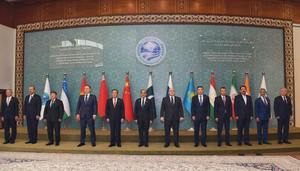Islamabad: India on Wednesday used the Shanghai Cooperation Organization (SCO) Council of Heads of Government (CHG) meeting in Pakistan to reiterate its demand for urgent reforms in the UN Security Council so that it could keep pace with the changing world order.
Addressing the meeting in Islamabad, External Affairs Minister (EAM) S. Jaishankar said there was a strong case for “reformed multilateralism” and the SCO must take the lead in advocating such change without holding back a matter of such importance.
He said the Security Council needs to reinvent itself to make it more representative, inclusive, transparent, efficient, effective, democratic and accountable.
“Comprehensive reform of the UN Security Council, both in the permanent and non-permanent categories, is essential. I remind you that we recognised in July 2024 at Astana that the credibility and effectiveness of the UN is dependent on ensuring the representation of developing countries through comprehensive reform,” said EAM Jaishankar.
India has been pushing for a permanent seat in the UNSC but has not been successful due to objections by certain existing members.
The External Affairs Minister also highlighted India’s global initiatives and national endeavours that are relevant to the SCO.
“The International Solar Alliance promotes renewable energy. The Coalition for Disaster Resilient Infrastructure prepares us for climate events. Mission LiFE advocates a sustainable lifestyle. Practising Yoga and promoting millet make a difference to wellness and to the environment,” he said.
Jaishankar also showcased India’s role in the Global Biofuel Alliance which recognises the task of energy transition. “The International Big Cat Alliance protects our bio-diversity,” he said.
“At home, we have demonstrated the value of digital public infrastructure, just as we have shown the impact of women-led development,” the minister added.
Earlier, Jaishankar sent a strong message to host Pakistan on cross-border terrorism by describing “terrorism, extremism and separatism” as the “three evils” that need to be addressed to promote cooperation and integration.
“If activities across borders are characterised by terrorism, extremism and separatism, they are hardly likely to encourage trade, energy flows, connectivity and people-to-people exchanges in parallel,” the minister stated.
–IANS


Comments are closed.